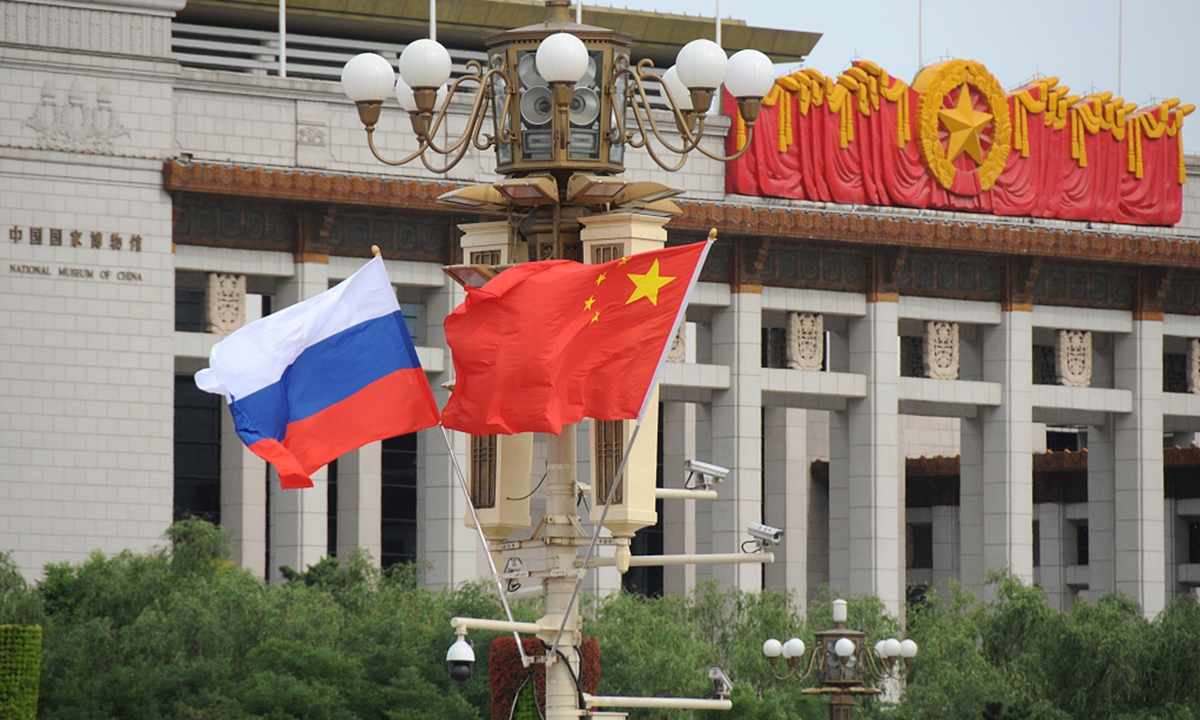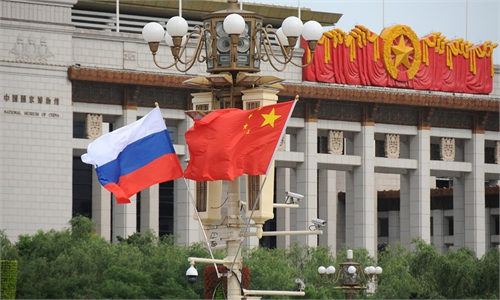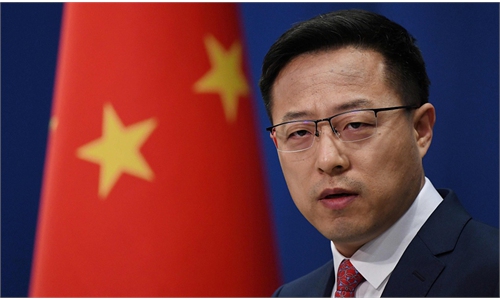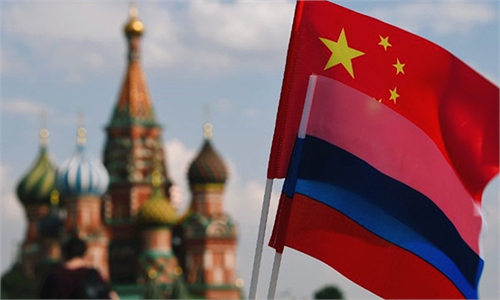
China Russia Photo:VCG
Beijing Winter Olympic Games will open on February 4, and a new stage of China-Russia relations will begin. President Xi Jinping and President Vladimir Putin will meet face to face for the first time in two years on the sidelines of a major global sporting event. Of all the Olympic sports, the biathlon is best suited to express the meaning of this meeting.A list of priority topics for discussion is prepared for the two presidents. There are many impressive successes. The Chinese-Russian Treaty of Good-Neighborliness and Friendly Cooperation, which was to expire this February, has been extended for another five years.
Bilateral trade in 2021 reached a record of nearly $150 billion. Defense ministers for the first time approved the joint roadmap for the development of military cooperation from 2021 to 2025. Chinese and Russian strategic bombers continue to patrol the vicinity of American bases in Japan and South Korea in general formation. For the first time, scientists have agreed to jointly build the International Lunar Research Station. The "comprehensive strategic partnership of coordination for a new era," which Xi and Putin agreed on, is being filled with concrete content.
There are still some problems. So far, bottlenecks in finance have not been eliminated. It is not yet possible to achieve mutual recognition of COVID-19 vaccines, which leads to a virtual ban on communication between Russians and Chinese and a reduction in flights and road traffic. These problems that naturally arise in the relations of the two neighboring countries are waiting to be solved during their top leaders' meeting.
In addition to the preparations of their diplomats and advisors, Xi and Putin will discuss much more complex issues. Looking eye to eye, they will talk about the cold war waged against China and Russia by the US and its allies. On both fronts, the Eastern and Western, the red lines have already been reached and it is quite possible that they will be accidentally or deliberately crossed. The island of Taiwan and Ukraine are being "pumped up" with weapons; they are being pushed to suicidal actions by more and more formidable resolutions and promises of support "in case of emergency." What will be the actions of China and Russia "in case of emergency," what forms of diplomatic, informational, economic or even military support can be counted on? This may become the main topic of the meeting.
Fearing the already reached level of China-Russia strategic partnership and trying to prevent new forms of interaction, Washington is trying to sow distrust between the two nations. This, in particular, can explain the surge in Washington's diplomatic activity in the Russian direction. It's expected that Putin will tell Xi about the content of recent contacts and convince him that there is not even a thought of a "double play." Twenty years of experience with American leaders have led the Kremlin leader to assume complete unreliability of any promises from Washington. His 20 years of experience with Chinese leaders and, especially, almost a decade of communication with Xi, have proven China's trustworthiness.
Faced with the US' unprecedented hostility, the Chinese, too, are shedding their last illusions. Increasingly, they are coming to the conclusion that the irrational rejection of all things Chinese in the US stems from a powerful layer of Sinophobia in the collective mindset of the American society. On this basis stands the anti-China policy of the White House and both major parties, who argue about everything except their shared hatred of the Middle Kingdom. Sinophobia, like Russophobia, is explained by the desire to destroy any rivals of the "shining house on the hill" who question the American "God-given natural right to rule." It is possible to trade with such partners, but not to build sustainable relationships.
In the context of intense diplomatic games between Moscow and Washington, an increase of trust should be the main result of the Olympic meeting between Xi and Putin. The main outcome of the upcoming meeting can already be predicted. China and Russia will not yet become a single "biathlon team," but will continue to confront opponents "back to back."
The author is head of the Chinese Dream and Russian Dream Analytical Center. opinion@globaltimes.com.cn



